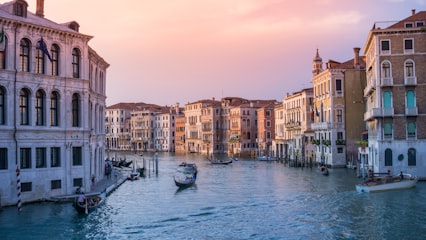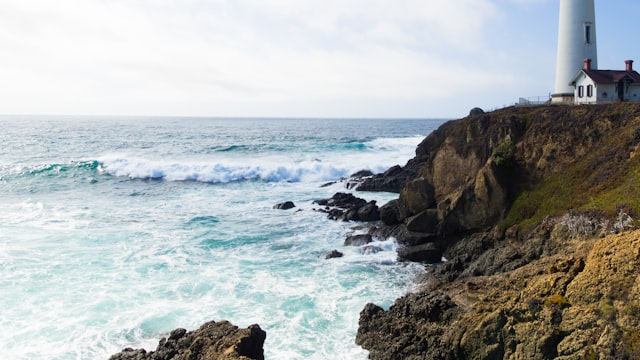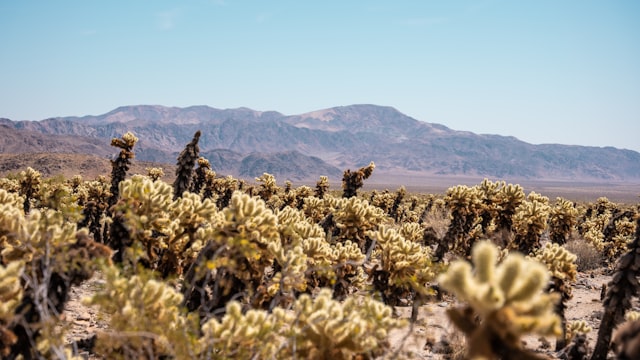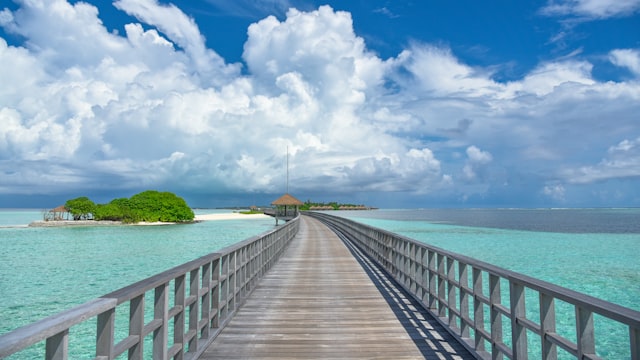Get Your Guide
submitted by tourguide
#General

submitted by tourguide

{Although internet based booking sites make it convenient for travelers to choose their own arrangements and rooms, travel specialists nevertheless offer you a standard of service and know-how not offered by an algorithm. When you
Whatever you perspective it's literally irrefutable that all travel activities of whatever reason – holidays, company travel, events, adventure tours and ecotourism – need to be sustainable.
Suitable guides and travel specialists are switching to rejuvenated interest in green hospitality and tourism and green outdoor activities from visitors. It's not really a whole new idea, the Journal of Sustainable Tourism was established over twenty-five years ago.
In response to popular demand read in the news a fresh new and insightful entry discussing travel and attractions has been syndicated just recently.
submitted by tourguide

The green travel and hospitality marketplace can often be difficult to navigate because of so many terms being thrown around. There are many labels, but the concept continues to be similar: scrupulous environmentally aware low impact travel and hospitality that accepts the way things are and doesn't strive to wreck things for selfish purposes. {Eco-tourism is Additional closely definedas: responsible travel to natural locations that sustains the ecosystem and adds to the It is very important that travelers conduct some research hotel claims of being green before making reservations. Most green hotels have information on their websites about their sustainability initiatives outlining their concrete steps of saving natural resources, preserving plants and animals, and adding to the wellbeing of local people.
There are certain popular facets that generally speaking illustrate an ethical tourist that values the areas they visit.
{Despite the fact that internet based booking sites have made it simple for people to choose their own plane tickets and rooms, travel agents nonetheless present you with a standard of service and know-how not really offered by a search bot. Every time you
At its core, the analytics that affect the tours trade are fairly common. Keep in mind details are different, but the basic formula is all about supply and demand.
It is maybe not breaking news that tour providers and travel agents are cognizant of the sale of sustainable vacation destinations and sustainable fun-based activities from holiday-makers. It's hardly a totally new point, the Journal of Sustainable Tourism was established in 1993.
A trending and compelling article talking about ethical tourism and fun-based activities might be worth reading.
submitted by tourguide


For anyone going to a destination you have not paid a visit to yet nothing beats obtaining some reliable regional recommendations. California is a travel destination that the topic of responsible hospitality and travel matters. There are various factors why travelers are passionate about Californian summer vacations. Do you think there is a top rated vacation spot?

A Visit To the state of California
Who will probably provide the more trusted suggestions involving going on holiday? Quite often obtaining local area news reports is more interesting than illustrated brochure narratives. Postings from localized experts can offer good understanding for anybody contemplating place insights. A fresh short list came to prominence and for that reason I realized it is suitable for posting here. By my calculations there are not enough posts that incorporate all the questions people have. This explanation focuses on factors to think about whenever considering an Californian journey.

A Vacation In California
was written by Dine Newport, 2019-05-22 23:32:10
be sure to visit their website, source link is at the end of the article
Pour yourself into National Wine Day in Newport Beach on Saturday, May 25 at one of these four zin-sational culinary enclaves. Your next grape escape awaits!
 Serious Sippin’at The Winery
Serious Sippin’at The Winery
For those with refined palates The Winery Restaurant & Wine Bar is for you! With a selection of 650 wines and a climate-controlled cellar that can hold up to 7,500 bottles, this is the place for serious drinkers and connoisseurs.
You’ll need food to absorb all of that excellent wine and The Winery is well known for its California regional cuisine. From steak to seafood, this is the place for pairing a good glass of vino with a delicious meal.
 Sippin’ On The Dock On The Bay at Lido Bottle Works
Sippin’ On The Dock On The Bay at Lido Bottle Works
Some people enjoy that perfect glass of wine while their date craves a craft beer. That’s okay, because Lido Bottle Works offers both options in a stylish, but comfortable setting. Here California wines steal the show including a nice selection of reds, whites and rosés. Beer lovers will also appreciate the extensive choices including IPA’s, ales and stouts.
In case all that sipping makes you hungry, Lido Bottle Works offers a creative, seasonal menu that compliments both wine and beer. Local and sustainable ingredients drive the menu.
 Sippin’ A Votre Santé at Marché Moderne
Sippin’ A Votre Santé at Marché Moderne
The French famously love their wine, so Marché Moderne is an ideal place to celebrate National Wine Day. The wine list here includes classic French varietals like Bordeaux, Sancerre, and even Champagne.
But it would be a mistake to come here and not partake of the authentic French food prepared by the husband and wife team of Florent and Amelia Marneau. This is the place to appreciate classic dishes like duck confit and coq au vin.
 Sippin’ with the Lady at Juliette Kitchen & Bar
Sippin’ with the Lady at Juliette Kitchen & Bar
For anyone looking for a uniquely curated wine list that combines California and Europe, then Juliette Kitchen & Bar is the right choice. Don’t know which wine to order? Try a flight and sample three, 3 oz. glasses. Or, for those seeking a cocktail instead, this place also offers a menu of creative options.
Executive Chef, Daniel Hyatt, hails from some of California’s top restaurants and brings his expertise to Juliette’s. Choose from scallops, duck breast, rack of lamb and many other classic dishes.
Written By: Wendy Lee
Original Source for Where to Sip: National Wine Day

California Tourism
More Often Than Not the more informative articles does not come from sweeping scholastic studies but intimate experiences featuring individuals and small communities. Nevertheless, paradoxically often it is the big organizations that provide the more interesting and truthful content. Naturally there is also a role for tourism statistical research or policy assessment. Posts about a vacation in California like Where to Sip: National Wine Day support us to take a look at the broad ideas of sustainable tourism and hospitality.
California is a destination in which sustainable tourism is crucial.
High on the list of recommended trips for folks coming to California is not complete without the following opinions regarding destinations, holiday attractions, and things to do.
If you haven’t already picked a certain California location picked out, these are standard travel agency answers for common sites Big Sur, Lake Tahoe, Los Angeles, Monterey and Carmel, Santa Barbara, Sequoia and Kings Canyon National Parks. Remember that California is a big place and these suggestions aren’t actually close together.
Highlights of Californian famous and most well-known sightseeing opportunities and holiday attractions.
LA hosts prominent museums and galleries, special accommodations, assorted experiences and beaches.

Los Angeles Trip
On the border closest to Mexico, San Diego has excellent food, outside activities, and climate. San Diego has great California cuisine, this southernmost of California cities has some truly great restaurants, fantastic beaches, and envious weather and this is the city for relaxing in. Be careful you might want to move here.
Sea World: This popular aquatic theme park offers rides, animal exhibits, and shows.
San Diego Zoo and Wild Animal Park: Top Rated reputations, fun for all age groups.
Old Town San Diego: Charming district with shops, fantastic Mexican food.

San Diego Adventure
Planning a holiday away from home can be challenging which makes it a good idea to get a travel adviser to guide you with the process. Even if you want to travel inside your own country, it is always better to communicate with those who are knowledgeable about transport, accommodations, and costs.
Considering that call for ethical hospitality and tourism and ethical excursions is well developed, brand reputation is more valuable than ever before.
Need for ethical hospitality and tourism and ethical excursions is experiencing a rebirth and is encouraging.
It's not really a totally new point, the Journal of Sustainable Tourism was established in 1993.
Just in case you've been bored, here's an alternative worthy short article relevant to green tours and outdoor activities.
Seen from a common good position the market forces and possibility of misuse behind tourism might create problems, including social dislocation, damaged heritage, inordinate monetary reliance and ecological damage.
The mix of economic concerns surrounding sustainable tourism, in addition to associated ideas described as responsible tourism, and ecotourism have been around a long time.
Similar to many other prominent considerations business managers, the general public, state governments, or activists, are going to focus on specific segments.
Oftentimes the most explanatory material are not sweeping scholastic case studies but detailed stories showing individuals and small communities. Surprisingly frequently it’s the largest organizations offering the fresh and educational stories. Of course there is also a role for travel statistical statements or policy assessment. Material such as ADVANCED ECOTOURISM CERTIFICATION ACHIEVED BY YURAYGIR WALKING EXPERIENCES – Global Sustainable Tourism Dashboard help us to take a look at the far reaching topics of sustainable tourism hospitality and travel.
We would like to extend a warm welcome to Yuraygir Walking Experiences and congratulate them on achieving Advanced Ecotourism certification on four of their tours!

Operating on the Northern New South Wales coast, Yuraygir Walking Experiences brings together their extensive local knowledge, passion and collective experience to provide visitors with the opportunity to walk, explore and learn about the 65 kilometres of undisturbed coastline that run the length of the Yuraygir National Park.
On their longest tour, the four-day King Tide Guided Tour, guests have the opportunity to explore the Yurangir coast, cross rivers and learn about the native wildlife and coastal conditions before ending the day with a hot shower and meal with new friends. On this tour, visitors can expect to experience the best of the coastal Yurangir region without having to worry about organising river crossings, accommodation or food as the tour includes all necessary logistic requirements and comforts including hot showers and amenities. Guests can enjoy the tour with an experienced and knowledgeable guide who understands all relevant local conditions and can give unrivalled insight into the area, its history and its natural and cultural values. Now certified with Advanced ECO tourism certification you can experience the best of the Yuraygir National Park knowing that your in capable and sustainable hands.

If visitors don’t have time for a complete four-day trip, then other options are available, including a guided two-day highlights tour in either the Central or Northern Yuraygir region. These walks are a great way to experience some of the best features and highlights of the area with a knowledgeable guide with breakfast, lunch and dinners included, accommodation in Minnie Water or Wooli is self-arranged.

If guests are after a more adventurous experience, the Weekend Walk and Paddle tour is a great way to immerse themselves in nature with this combination walking and paddling tour. Balancing Adventure and relaxation the Weekend Walk and Paddle is a fully guided tour taking visitors on a two day and two night trip through the Yuraygir National Park.

Yuraygir Walking Experiences cooperate with the New South Wales National Parks and Wildlife Service and with local Indigenous communities to ensure the benefits of tourism in the region are maximised and the negative impacts minimised. The business also draws upon and utilises local expertise, produce and talent to offer a unique local ecotourism product offering high quality, personalised interpretive experiences of the natural and cultural values of Yuraygir National Park.
Ecotourism Australia would like to once again congratulate Yuraygir Walking Experiences on their development of sustainable ecotourism products and in achieving Advanced Ecotourism Certification for their above mentioned tours.
For more information about Yuraygir Walking Experiences, visit our Green Travel Guide.
[All photos retrieved from Yuraygir Walking Experiences’ website or Facebook page]

What the heck is green tourism? Responsible tourism, sustainable tourism, eco-tourism, and green tourism are usually taken as interchangeable. Technical classifications aside the idea remains exactly the same: careful eco-friendly reduced impact hospitality and tourism that accepts the way things are and doesn’t strive to wreck things for selfish purposes. Eco-tourism is more narrowly defined by the International Ecotourism Society as: responsible travel to natural places that sustains the ecosystem and enhances the benefit of local people. The key values of ecotourism include cutting down on impact, protecting biodiversity, developing environmental attention, and respecting local culture. Generally, the main attractions for ecotourists are natural beauty, flora, animals, and cultural heritage.
The term green tourism was used by researchers in a study that laid out the hospitality business practice of positioning green placards in hotel rooms to encourage guests to reuse bath towels. The study determined regarding a lot of accommodations fundamentally made no attempt to really avoid wasting resources or reduce waste; they just wished to appear to be environmentally friendly. Very much like the introduction of the demand for eco-tourism twenty years ago where companies just put on the word ‘eco’ to their logos.

Responsible Tourism
Considering sustainable tourism begins with some basic issues. Is tourism a good thing? Hospitality and tourism supercharges economic climates. It employs many thousands of workers, enriches our companies and funds important prevalent services, like schools and police. Travel and hospitality can provide jobs and boost the wealthiness of a region. Does tourism change the environment? Travel puts considerable pressure on local land use, and may result in soil erosion, greater pollution, natural habitat decline, and much more burden on endangered animal species. These impacts can ultimately ruin the environmental resources on which travel depends. Sustainable tourist ventures help environmental conservation, social development, and local economies. Examples of sustainable business practices include conserving water and energy, supporting community conservation projects, recycling and treating waste, taking on staff from the local community, compensating them fair wages and offering training, and sourcing locally-produced products for restaurants and gift shops. Sustainable tourism operations take real steps to increase the welfare of local people and come up with positive benefits to the conservation of natural and cultural heritage. In doing so, they often cut down on their own costs and safeguard the longevity of their enterprises alongside encouraging ethical travelers. To enable sustainable travel and leisure to do well, it needs to be worthwhile for businesses. Is sustainable tours really difficult and mundane? A customary false impression is that responsible tourism is challenging and restrictive. It is easy it certainly does not imply your trip will be any less satisfying. There are many ways to have more operators that totally support eco-friendly travel .

The green travel and hospitality industry can be challenging to get through with the amount of terms being tossed about. Businesses and organizations at times choose these terms deceitfully to help tempt moral tourists without in reality having any eco-friendly or socially responsible guidelines established. What on earth is green tourism? Responsible tourism, sustainable tourism, eco-tourism, and green tourism might be interpreted as being all in the same bundle. Descriptions aside the definition remains similar: conscientious environmentally aware reduced impact travel and hospitality that accepts the way things are and doesn't strive to wreck things for selfish purposes. Sustainable tourism and ecotourism are close ideas and show many of the exact same maxims, but sustainable travel and hospitality is broader; it covers all types of travel and hospitality and destinations.

Ethical tourism basically means tourism which renders benefits to citizenry and the environment as opposed to unfavorable influences. Ethical travel business economic consequences can provide more suitable revenue for families living in the location, particularly by finding supplies and services in the community. What are tourism ethics? Sustainable tours requires thinking about the consequences of one's choices as a visitor on the environmental surroundings, residents and neighborhood economy. Many destinations truly need tourists and for many areas the traveler trade stands out as the top source of income and work.
How can someone become a responsible visitor? Be open minded about other cultures and traditions, it will probably improve your experience, you will receive recognition and be more welcomed by locals. Value human rights by not supporting activities that exploit people. Help protect natural environments by not becoming a part of adventures that harm animals or the ecosystem. Respect cultural norms. Your journey can play a role in commercial and social development. Here's ways to be sensible just about everywhere: Do some conduct some research before going. Go local. Remember that people are people, and that you're the foreigner. Learn One of the local language, such as please and thank you. Be aware of where you are. Don't talk politics. Admit regarding a tourist - which means you're a guest, act like one.
Are ethics important to the the sustainable travel business? Ethical tourism simply means tourism which will benefit communities and the environment. It can offer a better income to people living in the region by sourcing services and products from the local community. There are important economic effects to areas when services and products for tourists are procured locally. Destinations, tour operators, and hospitality providers should make sustainable tourism part of their offers, and should give alternatives to consumers focused on their travel having the right kind of impact.
The green travel sector is difficult to get through because there are many jargon being in use. There are many labels, but the meaning continues to be the same thing: diligent environmentally-friendly low impact tours that embraces the traits of places and people without the need to alter them excessively.
The title green tourism was used by researchers in a study that characterized the hotel trade program of putting green signs in hotel rooms to urge people to reuse bath towels. The study found which hotels essentially made virtually no attempt to actually save resources or minimize waste; they simply wanted to appear to be environmentally friendly. Similar to the growth of the sales of eco-tourism 20 years ago in which operators just put the word 'eco' to their signs.
Talking about sustainable travel begins with some basic answers. Is travel and hospitality good? Travel underwrites economies. It creates jobs for many thousands of personnel, enriches our organizations and provides budgets for vital customary services, including schooling and law enforcement. Hospitality and Tourism finances operating budgets and infrastructure for local public schools. Many developing nations want to nurture travel and leisure in order to infuse capital into the economy and to improve the benefit for their people. But, what begins as beneficial can easily devolve the situation.Sustainable vacation businesses sustain environmental conservation, social development, and local economies. Examples of sustainable business practices include conserving water and energy, supporting community conservation projects, recycling and treating waste, taking on staff from the local community, paying them fair wages and offering training, and sourcing locally-produced products for restaurants and gift shops. Sustainable Travel and Hospitality businesses take tangible actions to enhance the well-being of local communities and come up with positive contributions to the conservation of natural and cultural heritage. In doing so, they often reduce their own spending and safeguard the longevity of their enterprises in addition to encouraging responsible travelers. In order for sustainable travel and leisure to do well, it has to be lucrative for business people. What are the established ethical dilemmas in worldwide business? Some of the most established ethical obstacles in global business include outsourcing, working standards and conditions, workplace diversity and equal opportunity, child labor, trust and integrity, supervisory oversight, human rights, religion, politics, environmental concerns bribery and corruption. How does culture impact international business ethics? Culture effects how local standards influence international business ethics. There are variations in how much relevance societies put on particular moral behaviors. For instance, graft continues to be prevalent in many countries, and while many people may not like it, they have to accept it as a necessity of daily life. What is sustainable travel development? Sustainable Hospitality and Tourism is an Sector dedicated to making a low affect on the environment and local culture, while supporting future job opportunities for local communities. Being part of responsible Hospitality and Tourism is the idea of exploring a place as a tourist and attempting to make a positive influence on the environment, society, and economy. Travel encompasses primary transport to the general location, local transportation, lodging, entertainment, recreation, food and shopping. Is responsible tourism challenging and boring? A good mistaken belief is that responsible travel is challenging and limiting. It is not at all hard it certainly does not mean your holiday will be any less satisfying. There are many approaches to have A few more operators that completely support eco-friendly tours .
Destination travel is going through a makeover. One of the more conspicuous examples of the way changes in marketplace demand have resulted in important cultural changes is elephant tourism trending to helping elephants instead of making use of extreme training techniques to coerce elephants to do stunts or riding.



Learning about the potential unfavorable influences of tourism on areas has prompted customers to seek out more responsible vacations. Sustainable tourism is now so preferred that some say that it has moved from "alternative" to "mainstream".
Be it a state government development initiative or maybe potential buyers articulating what they need, the outcome appear to be identical - there are additional offers and further interest in tourism offers that fulfill the standards of sustainable tourism.
Sustainable tourism, together with similar business approaches commonly referred to as responsible travel, and ecotourism has been around a long time. The motivating factors associated with government or non-profit programs may have moved on, nonetheless studies demonstrate that there is hot consumer requirements from a high percentage of targeted visitors that are concerned about the issues.
Like many other big issues companies, potential clients, federal authorities, or activists, are going to be interested in differing elements.
As per numerous studies as a whole travelers desire sustainable tourism would like to be considered as responsible travelers.
Oftentimes the more explanatory writing does not come from extensive scholastic research but anecdotal viewpoints presenting people and small communities. Paradoxically it is sometimes the biggest organizations that provide the fresh and helpful content. Naturally there is also a place for hospitality and travel statistical reports or policy analysis. Content such as What value should we place on cultural heritage sites? « Ethical Travel Guide support us to take a look at the far reaching topics of sustainable tourism travel and tourism.
[ls_content_block slug="responsibletourism4"]
April 10, 2017 



Voices in Ethical Tourism [NB red buttons to the left no longer function]

Helen Jennings, Tourism Concern writer, asks some important questions in the light of current events:
Recent news stories from Iraq, Syria and Egypt, to name but a few embattled countries, have brought this question to the forefront of our minds. The recent destruction of Nimrod has raised howls of despair around the world. The ancient city south of Mosul has reportedly been bulldozed to the ground by Isis forces.
The stories have been well covered in the pages of The Guardian. “The birthplace of human civilisation … is being destroyed”, said Kino Gabriel, a leader of the Syriac Military Council – a Christian militia – in a telephone interview with the Guardian. What many are mourning here is not only the loss of life and property but also the attempt to erase all evidence of a particular civilisation and culture. And as Gabriel claimed in his interview with the Guardian “The loss is the loss of the entire world”.
Mardean Isaac, an Assyrian writer and member of ‘A Demand for Action’, an organisation dedicated to protecting the rights of Assyrians and other minorities in Syria and Iraq, claimed that “while the Islamic State is ethnically cleansing the contemporary Assyrian populations of Iraq and Syria, they are also conducting a simultaneous war on their ancient history and the right of future generations of all ethnicities and religions to the material memory of their ancestors”.
Irina Bokova, the director-general of UNESCO, the UN cultural agency, said she was deeply shocked at the footage showing the destruction and has asked the president of the UN Security Council to convene an emergency meeting “on the protection of Iraq’s cultural heritage as an integral element of the country’s security”. Here in the UK, British Museum staff have said: “we naturally deplore all such acts of vandalism and destruction of cultural heritage, and continue to monitor the situation to the best of our ability”.
It is impossible not to share in this general anguish and a profound sense of loss. Any loss of important cultural artefacts in any region of the world is a blow to our collective understanding of our humanity. The destruction of a group’s ‘history’ is deeply ‘uncivilised’ and conjures up thoughts of tyranny and ethnic cleansing. Yet the question should make us pause and think: could this happen here?
This is not to say we are about to become embroiled in civil war and destruction but are we facing something far more insidious and potentially dangerous? It may seem absurd and in bad taste to raise such a point on the back of such horror stories from the Middle East, but many influential bodies in the comparatively wealthy UK are expressing concern about the plight of our libraries, museums, galleries, heritage sites and archive offices in our current times of apparent ‘austerity’.
For some years now, the Museums Association has been expressing concern about losses in the museum sector. The survey conducted in the summer of 2014 found that one in ten respondents had considered selling parts of their collections, more than half of responding museums had experienced a cut to their overall income (the highest percentage to report such cuts since a survey in 2011), many were being forced to look at alternative funding streams, and most had been forced to cut full-time staff.
At most risk are those museums and galleries under the control of hard-pressed local authorities. Provincial museums are suffering, but so too are the major metropolitan centres. There is talk more and more of putting services out to tender, to trusts, to groups of volunteers, splitting organisations as big and important as English Heritage (which has come into effect this month), all with the aim of reducing costs, which will inevitably lead to loss of services.
What has gone out of the window is any care for ‘sustainability’. And ironically, we are witnessing in this current turmoil, the cracking of many cultural institutions created by wealthy philanthropists in the nineteenth century. Archaeological, architectural and historical bodies around the country are feeling the strain of maintaining properties, collections and staff. Whole libraries are being jettisoned, collections mothballed, curating and cataloguing skills being lost.
Many take comfort in the so-called ‘digital revolution’ and claim that images will make up for loss of books, archives and touchable cultural artefacts. But what will future generations say about the current losses? And what will tourists of the future have to visit? Should we not be taking stock of what we are bothering to preserve and what we are allowing to slip away unnoticed? Indigenous cultures reveal the problems of those whose past has been systematically attacked over many years. What we are suffering are the problems associated with complacency, a sense of western superiority, and a feeling that our past is not under the threats that are so obviously apparent in other parts of the world.
Helen Jennings has an MA in Indigenous Studies from The Arctic University of Norway (Tromsø).
The green tourism industry can be challenging to understand considering the variety of definitions being cast around. Whatever its called the idea stays alike: conscientious environmentally aware low impact tours that doesn"t impose the wrong things. Ecotourism is A bit more closely classifiedas: responsible travel to natural places that conserves the environment and improves the benefit of local people. The key standards of ecotourism include lessening impact, safeguarding biodiversity, strengthening environmentally friendly awareness, and respecting local culture. primarily, the principal interests for ecotourists are natural wonders, plants, fauna, and culture.
 Ethical Hospitality and Tourism[/caption]
Ethical Hospitality and Tourism[/caption]Investigating ethical travel depends on fundamental thoughts. Is hospitality and tourism good? Tourism elevates our economy. It employs many thousands of people, enriches our enterprises and covers expenses for important community works, including schooling and the police. Responsible tours is too relevant to underestimate. What is sustainable tourism development? Responsible tours is an trade focused on making a low influence on the environment and local culture, while supporting future work for local people. Being part of ethical travel is the theory of traveling to somewhere as a tourist and working to make a favorable impact on the environment, society, and economy. Tourism involves initial transport to the general location, local transportation, lodgings, amusement, recreation, nourishment and shopping. What is the goal of sustainable hospitality and tourism? The objectives of sustainability in hospitality and tourism have been determined by the The World Tourism Organization, United Nations specialized agency responsible for the promotion of responsible, sustainable and universally accessible travel as: economic viability, local prosperity, employment quality, social equity, visitor fulfillment, local control, community wellbeing, cultural richness, physical integrity, biological diversity, resource efficiency, and environmental purity.